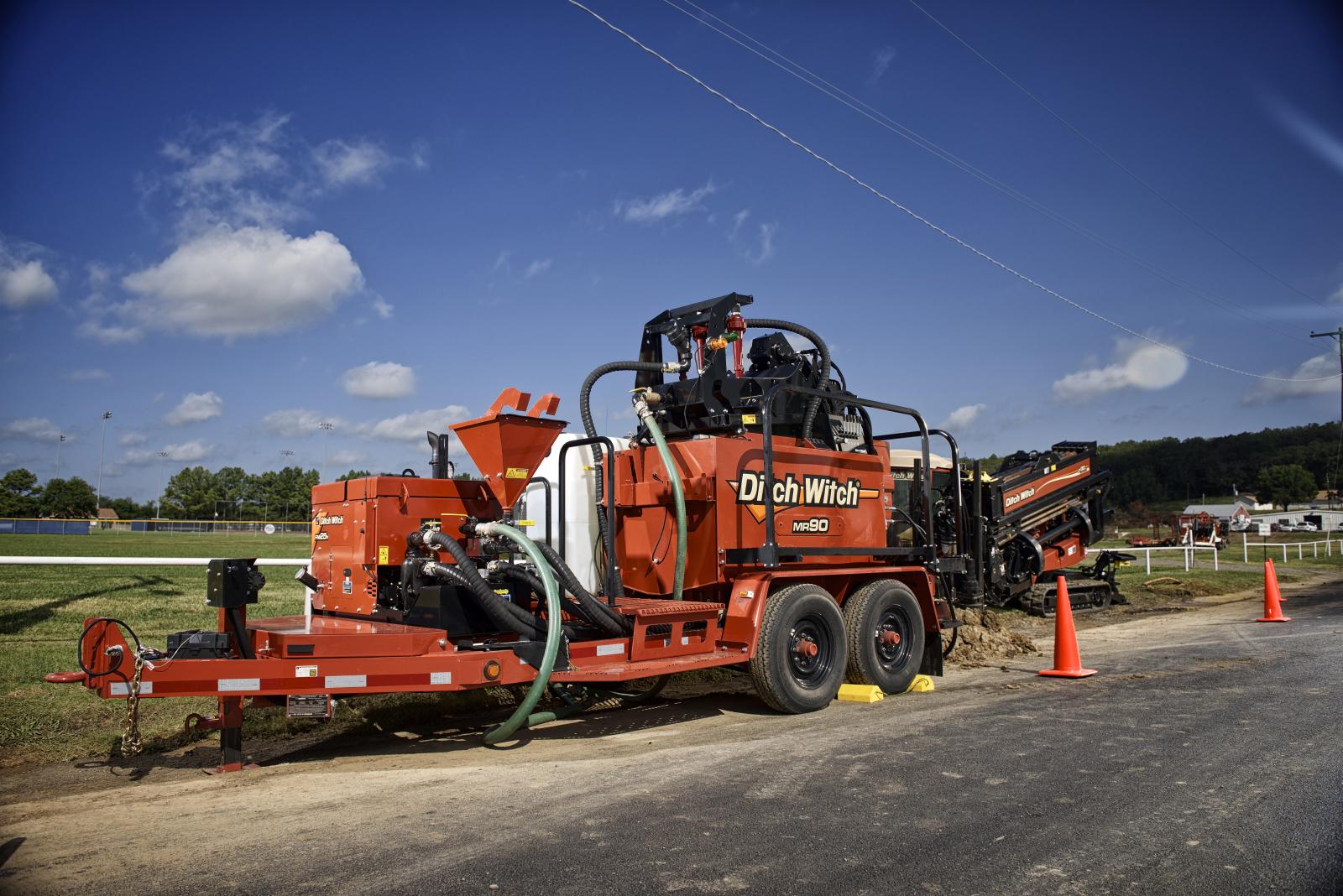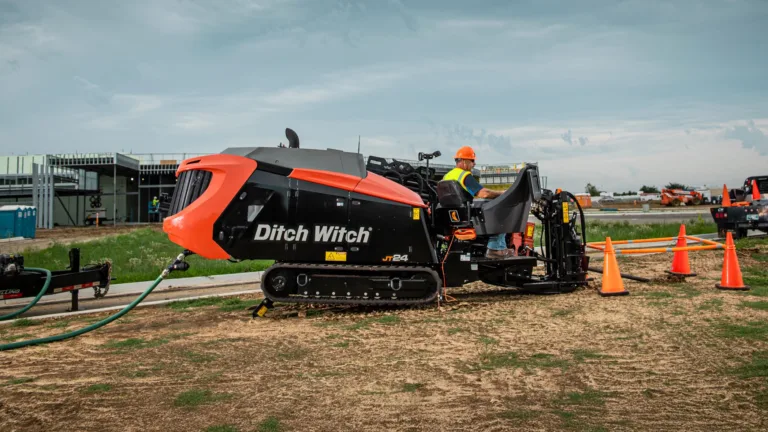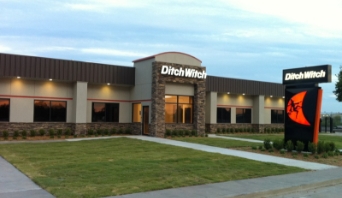Simplify Your Workflow and Save Money with Mud Recycling
By Seth Matthesen, Ditch Witch senior product manager, HDD
One of the biggest problems utility workers face during horizontal directional drilling (HDD) is dealing with leftover drilling mud.
Drilling mud can be messy to handle. After installing underground utilities, the mud can’t just be left on public land or private property. It’s the contractor’s job to clean it up and take it to a proper disposal site, which can take a lot of time and effort.
Luckily, new technology makes this easier. It lets contractors recycle drilling fluids by removing big chunks, rocks, sand, and tiny particles. This way, the clean fluid can be reused during the drilling process, saving time and cutting down on waste.
Micro Recycling System Benefits
In the past, because recycling equipment was typically manufactured for large operations with 100,000 lbs of pullback or higher, smaller utility projects were limited in their recycling efforts. But today, micro recycling systems are making drilling fluid recycling possible on smaller projects. These systems are compact enough to work in urban areas and meet the needs of standard-size directional drills, and can be quickly and easily transported from jobsite to jobsite.
Time and resources that were once spent on hauling and disposing drilling mud are now reduced through these compact units.
Contractor Savings
The cost of additives and disposal fees for 1,000 gallons of drilling fluid can range from up to $600 or more—and this does not include water and transportation costs. Also, because drilling fluid is being recycled during the pumping process, lower fluid volumes mean fewer additives and less water consumption. For example, an operation with a 30,000 pound pullback drill unit may pump 20,000 gallons of fluid throughout the project. Yet, when a micro recycling system is used, the actual fluid loss may only be 1,500 gallons of drilling fluids throughout the entire operation.
Using fewer additives, water and transportation resources can save contractors hundreds to thousands of dollars throughout the drilling process.
The Future for HDD Jobsites
Some units today, such as the Ditch Witch MR90, mix fluids, recycle mud and can be transported full of fluid. These combined components mean utility contractors are handling less tedious disposal steps and ultimately increasing jobsite productivity.
And although HDD fluid recycling still requires a skilled operator for maximum efficiency, the benefits of increased hole velocity include increased production, improved tooling life and reduced risk of inadvertent returns. For utility contractors, this means fewer trips to haul water supplies and dispose of fluids.
Overall, the recycler’s investment is recovered by the savings achieved, making it an increasingly appealing option for HDD industry professionals.
For more information, please visit http://www.ditchwitch.com/trenchless/fluid-management/mr90






